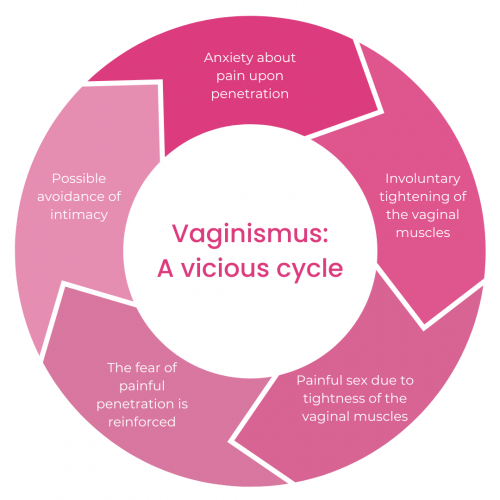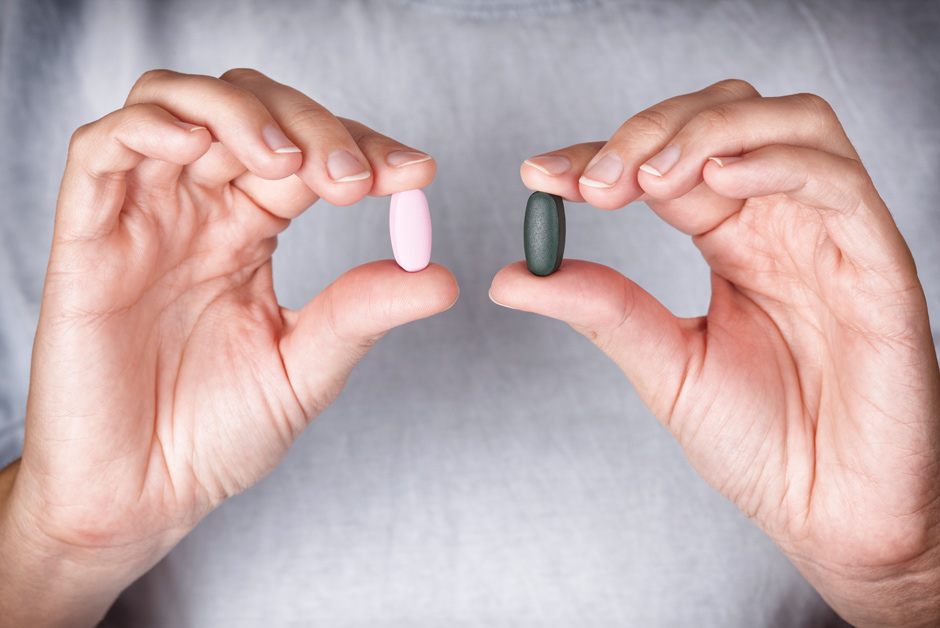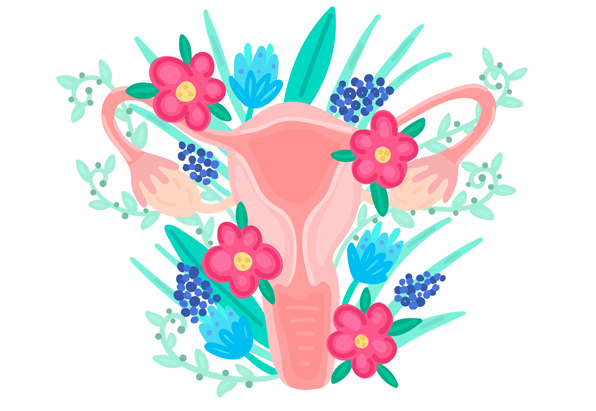If you are experiencing pain upon sexual intercourse or insertion of a tampon, you may be suffering with a condition called vaginismus. Many women silently bear this problem for years without ever hearing its name, so when they finally stumble upon it they commonly ask: but how do I know if I have vaginismus? Let’s break it down.
What is vaginismus?
Vaginismus is a condition in which the muscles around the vagina involuntarily contract in a conditioned reflex – which makes penetration (for example in sexual intercourse and tampon insertion) painful or even impossible. It is seldom talked about, but vaginismus can cause immense suffering, affecting relationships, confidence and self-esteem. Women with vaginismus are unable to enjoy sex the way most others do. Often sufferers become resigned to it, sometimes believing they must forego intimate relationships altogether. But the good news is, with the right treatment almost all cases of vaginismus can be cured.
How common is vaginismus?
Dr Alex Eskander, one of the UK’s leading Consultant Gynaecologists at The Gynae Centre says: “There isn’t consensus on the prevalence of vaginismus because it is believed to be underreported and research figures vary so much. For example in reports of data coming out of sexual dysfunction clinics, vaginismus has varied from 5 to 17%. We can say we believe it to be one of the most prevalent psychosexual dysfunctions in women.”
How do I know if I have vaginismus? What does vaginismus feel like?
Since vaginal penetration problems are almost never talked about in popular culture, women experiencing them often believe they are the only ones. They may not know how to spot signs of vaginismus. They will often ask: How do I know if I have vaginismus?
You may be suffering from this condition if you are experiencing any of the following symptoms:
- Pain during sexual intercourse
- Being unable to have sex because of a ‘brick wall’ sensation which makes penetration impossible
- Inability to insert a tampon or pain upon inserting a tampon
- Strong pain during a cervical smear screening (that may even make undergoing the screening impossible)
- A sense that there ‘isn’t enough space’ in your vagina to have sex or put in a tampon
If you are experiencing problems like this, there’s a good chance you have vaginismus. However, there are other issues that could be causing these symptoms (for example an undiagnosed septate hymen or even a vaginal dryness problem), instead of/in addition to vaginismus.
So how do you know if you have vaginismus? To be sure, it is imperative that you get a thorough examination and detailed consultation to get to the root of what’s really going on. Your medical history will also be taken and a gynaecologist will enquire about the symptoms you are experiencing and your sexual history.
Of course this can seem daunting but it’s important to remember that a good gynaecologist is compassionate and has heard and seen it all before. As scary as it might seem to talk about this problem and to undergo an examination, Dr Eskander is very experienced. He will examine you gently and with sensitivity, however examination is not necessary if this is going to cause you anxiety. Try to remember that waiting on the other side of this unwelcome experience is almost certainly freedom. Freedom to feel confident and to enjoy sex the way others do.
Indeed here at The Gynae Centre we enjoy a 90% success rate with our leading-edge vaginismus treatment.
What causes vaginismus?
The pain of vaginismus is real, and the muscle tensing in vaginismus is involuntary and not ‘in your mind’. However, this muscle tensing is a conditioned reflex stemming from a mental block – usually a response to fear of vaginal penetration. The reasons for this fear vary from woman to woman. Some women have had vaginismus ever since they first attempted penetration and some women, less commonly, develop it after years of enjoyable sex.
Causes may include:
- A condition that causes physical discomfort upon penetration (for example thrush or a septate hymen) which then creates a contraction reflex.
- Hymen abnormality or a very thick hymen
- A difficult medical examination
- Beliefs about sex being dirty or shameful
- An unpleasant sexual experience
- Traumatic childbirth
- A fear that your vagina isn’t large enough for penetration
Whatever the initial catalyst, vaginismus itself is a ‘vicious cycle’ in which: a woman anticipates pain upon penetration, which creates an involuntary contraction in the vaginal muscles in defence, this contraction itself creates resistance and pain upon penetration, and then the fear of painful penetration is reinforced. And so on and so on, in a loop. See below:

Can vaginismus be cured?
Yes, the good news is that with the right protocol, vaginismus can be effectively treated. Here at The Gynae Centre we specialise in vaginismus and our leading-edge Botox treatment and hymenotomy for vaginismus boasts a 90% success rate.
If penetration is painful because of vaginismus, you don’t have to suffer. And you needn’t conclude sex simply ‘isn’t for you’. Here at The Gynae Centre, we’ve seen countless women finally break free of vaginismus and be able to enjoy intimacy.
To find out how we can help, call us on 020 7580 8090 or book online.






